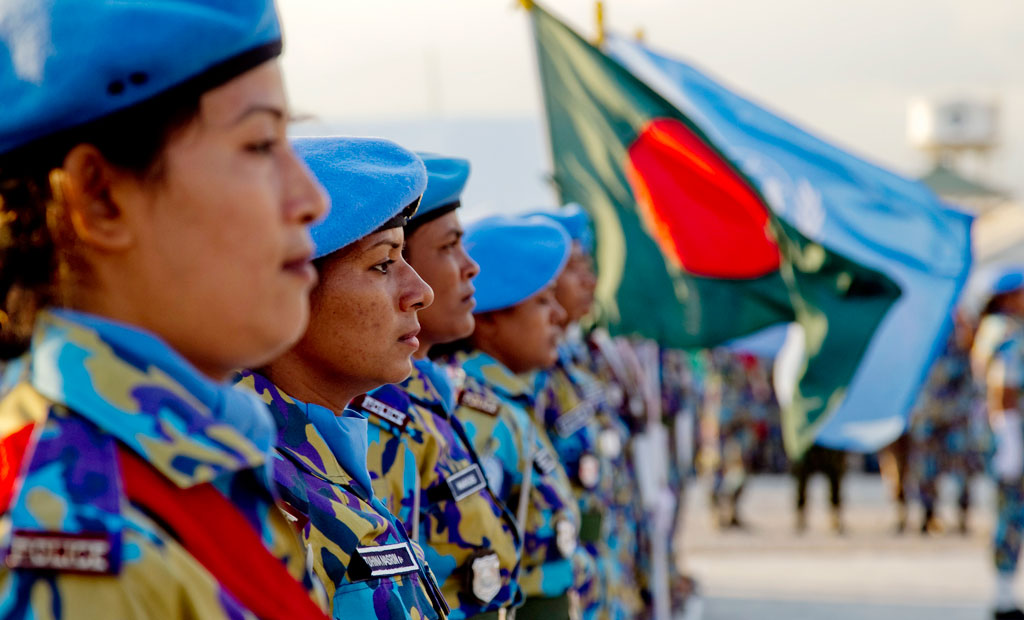
In the middle of a coronavirus pandemic, it is another, more deadly disease that keeps 20-year-old Haitian Loubean Jean up at night – cholera.
Jean was about to celebrate his 11th birthday in 2011 when his father was struck with cholera and died aged 49, leaving five children behind.
Jean’s mother, who was also sickened by the waterborne disease that ravaged Haiti a decade ago, survived but still suffers from cramps and blurred vision.
“My father was the sole provider for the house,” said Jean, who along with two of his siblings had to skip school because his mother could no longer afford to send them. “His body wasn’t returned to the family for the funeral.”
Haiti was cholera-free until October 2010, when infected sewage from United Nations peacekeepers sent to the Caribbean nation after a devastating earthquake contaminated a river.
Since then about 10,000 Haitians have died of the disease, which can cause profuse diarrhoea and fluid loss that can kill within hours. More than 800,000 have fallen ill.
A U.N.-appointed panel concluded in 2011 that fecal contamination by a U.N. peacekeepers’ camp was a likely cause of the epidemic, but said “it was not the fault of, or deliberate action of, a group or individual.”
The U.N. has not accepted legal responsibility for the outbreak, which human rights lawyers and former officials have said would have likely meant the organisation paying large amounts of compensation to affected individuals.
Former Secretary-General Ban Ki-moon apologised to Haiti for the organisation’s role in 2016, saying it had a “moral responsibility” to help affected Haitians.
The U.N. also pledged to eliminate cholera from the Caribbean nation, set up a $400 million trust fund to help victims and live up to its “moral responsibility” to those most directly affected and provide material assistance.
LAWSUITS
A decade later, cholera victims say they are still waiting for the U.N. to honour many of those commitments.
Earlier this year, 14 independent human rights experts warned of “serious shortfalls in funding and expenditures”.
The U.N. has raised only $20.5 million of the $400 million trust fund and spent just $3.2 million, they said.
Ramsey Ben-Achour, representative of the U.N.’s special envoy for Haiti, said in total more than $705 million had been spent on fighting cholera in Haiti since 2010, about $140 million of which the U.N. raised.
“These investments have gone towards the development and creation of water and sanitation infrastructure, as well as in health and epidemiological and surveillance systems,” Ben-Achour said in emailed comments.
“It is the result of these investments that Haiti has been able to eliminate the transmission of cholera, without a single case in nearly two consecutive years.”
Human rights organisations have filed several lawsuits on behalf of cholera victims demanding financial compensation from the U.N.
The U.S.-based Institute for Justice and Democracy in Haiti (IJDH) filed legal claims with the U.N. in 2011 that were rejected.
It then filed a class action lawsuit in a U.S. federal court, which in 2016 upheld the U.N.’s immunity from damages.
Sandra Wisner, senior staff attorney for the IJDH, said victims had been denied effective remedies.
“The U.N.’s denial of justice and violation of victims’ rights has really meant that thousands of Haitian families continue to suffer from the particularly devastating impacts of cholera, including serious economic and social harms,” she said.
Human rights lawyers say poor Haitians with little or no access to clean water and sanitation were hit hardest.
“For the at least 10,000 people who have lost loved ones, the only thing that has happened is a handful of community projects in a couple of the most affected communities in Haiti,” said Beatrice Lindstrom, who was lead counsel in IJDH’s class-action lawsuit.
“But these projects don’t go to actually addressing directly the injuries that people suffered,” said Lindstrom, who now teaches at Harvard Law School.
The U.N.’s Ben-Achour said individual compensation payments were not currently being made, as this was “predicated on solving a number of complex issues, including raising the totality of funding required to make individual payments”.
Instead, the U.N. is working with 134 communities affected by cholera to develop projects based on their chosen priorities – mostly building water and sanitation infrastructure, he said.
‘SHAMEFUL’
In interviews with the Thomson Reuters Foundation, two prominent former U.N. officials used the word “shameful” to describe the U.N.’s response.
Andrew Gilmour, former assistant secretary-general for human rights, said U.N. lawyers had resisted accepting responsibility.
“The most shameful aspect of this entire sorry episode was the way the top U.N. legal people went the extra mile to resist any attempt by those in the organisation who wanted the U.N. in 2016 to accept moral responsibility and issue a sincere apology,” he said.
“And instead adopted political expediency and the narrowest legalistic approach at the cost of U.N. charter values and compassion for Haitian victims.”
In response, Ben-Achour said Secretary-General Antonio Guterres had made Haiti “one of his very top priorities” and had called on the U.N. system to “right the wrongs of the past”.
Philip Alston, the U.N.’s former special rapporteur on extreme poverty and human rights, said the U.N. had a moral and legal responsibility for the outbreak.
“I am deeply offended that the U.N. has refused to stand up to its own responsibilities and has locked itself into a continuing situation, which is going to be indefensible every time some major negligence issue comes up,” Alston said.
“There was a deep split within the secretariat in terms of a significant number of people who felt that this was shameful, as well as being self-defeating and just legally nonsense,” Alston said of the U.N.’s decision not to accept legal responsibility.
For Jean and most cholera victims, the fight for justice goes on.
“The U.N. is an organisation for the defence and promotion of human rights. It cannot violate its own laws, its own charters,” he said.
“I ask them to right the wrongs done.”

